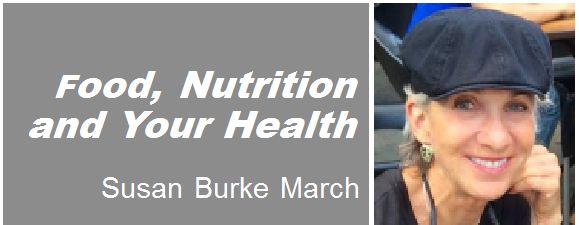Making sense of nutrition news: Does coffee prevent heart disease? The ‘best’ diet for weight loss? Is coconut oil healthy or harmful?
As reported in the Harvard Health Letter, deciphering media stories on diet and nutrition can be challenging. Writers may report on a single preliminary story as if it’s a conclusive finding, or highlight one to gain some quick “clicks” just because it contradicts current health recommendations. This week I’m detailing three recent diet/nutrition stories that I think need more clarification.
detailing three recent diet/nutrition stories that I think need more clarification.
Will Drinking Coffee Make You Live Longer?
Recently, the media was very busy reporting on a newly published study linking coffee consumption to lower risk of heart disease and stroke. Headlines proclaimed coffee as a “cure” leading to longer life and cutting risk of dying from stroke and heart disease. The New York Post even proclaimed, “Drinking coffee basically keeps you alive.”
Sounds like drinking coffee is a disease prevention strategy? Well, no…that’s not what the study says. In fact, as reported in Annals of Internal Medicine, the two studies found an association between drinking coffee and living longer. And not that much longer.
My first thought when reading these headlines was, what if you do lead a healthy lifestyle, but don’t drink coffee…will you die sooner? The headlines didn’t mention that scenario.
That’s because the study isn’t definitive about drinking coffee. It’s associative, not cause and effect.
 More accurately, The Guardian quoted Naveed Sattar, professor of metabolic medicine at the University of Glasgow, “It is not necessarily the coffee drinking per se, it is the fact that your lifestyle or the lack of ill-health that might be causing the association.”
More accurately, The Guardian quoted Naveed Sattar, professor of metabolic medicine at the University of Glasgow, “It is not necessarily the coffee drinking per se, it is the fact that your lifestyle or the lack of ill-health that might be causing the association.”
While coffee might have beneficial effects, it would take randomized trials to be sure.
Even the study’s authors emphasize their research shows association, not causation. They write, “Although this study does not show causation or point to what chemicals in coffee may have this ‘elixir effect,’ it is clear that coffee can be incorporated into a healthy diet and lifestyle.”
However, previous research on coffee does attest to coffee’s many healthful properties, including antioxidants and phenolic compounds that may play a role in cancer prevention. And in a previous column for CuencaHighLife.com, I cited research showing drinking coffee is associated with a lowered risk for type 2 diabetes, depression, dementia, and Parkinson’s disease.
Remember, we’re talking real coffee, typically black or with a minimal amount of milk and sugar added, not high-calorie “frappuccino” coffee drinks. Click here for some high-calorie examples.
Yes, coffee has some benefits! And I, for one, enjoy a couple of cups every morning with breakfast, but avoid caffeine after that, since I’m susceptible to the well-known insomnia side effect. How about you?
Read a detailed explanation on the published study from the University of Southern California here. They report, “In some respects, coffee is regaining its honor for wellness benefits…research on coffee has mostly shown no harm to people’s health.”
Is There A “Best Diet” For Weight Loss?
In my 2009 book Making Weight Control Second Nature: Living Thin Naturally, I wrote that all diets work for weight loss…temporarily.
When people “go on a diet” they typically change from their usual diet (the one that made them fat), to a structured meal plan. And regardless of that diet’s calorie count or nutrient balance, when someone follows someone else’s diet, they typically eat a more restrictive diet.
 “Dieting” usually means changing your behavior, dumping junk foods, fatty burgers and fries, sugary soda and desserts, and other nutrient-dense foods in favor of healthier foods, usually fresher and unprocessed (unless you’re opting in for a meal-replacement diet). And research shows that whether the diet is low carb or low fat, vegan or Paleo, by sticking to a prescribed plan, the weight comes off. (Usually, along with changing what people eat, “going on a diet” includes getting off the couch and getting some activity — which enhances weight loss.)
“Dieting” usually means changing your behavior, dumping junk foods, fatty burgers and fries, sugary soda and desserts, and other nutrient-dense foods in favor of healthier foods, usually fresher and unprocessed (unless you’re opting in for a meal-replacement diet). And research shows that whether the diet is low carb or low fat, vegan or Paleo, by sticking to a prescribed plan, the weight comes off. (Usually, along with changing what people eat, “going on a diet” includes getting off the couch and getting some activity — which enhances weight loss.)
But the problem with diets is when most people see their dream number on the scale, that’s when they say, “Yay! Now I can go off my diet!”
And they return to their usual diet, and regain the weight…. and usually more.
But new research has improved upon our understanding of weight loss. Researchers have found that there may be a “best” diet for certain people! Different weight loss diets work differently for different people.
As published in the American Journal of Clinical Nutrition, researchers conclude that your fasting blood glucose levels, fasting insulin levels, or both, can determine the type of diet that will best promote weight loss for you.
[A fasting blood sugar level from 100 to 125 mg/dL (5.6 to 7.0 mmol/L) is considered prediabetes, sometimes called impaired fasting glucose.
A fasting blood sugar level of 126 mg/dL (7.0 mmol/L) or higher indicates type 2 diabetes.]
Adults who were found to have prediabetes were found to have most success with a diet rich in whole grains, fruits and vegetables, also known as a “high fiber/low glycemic index” diet.
And adults with existing type 2 diabetes had the most success eating a diet rich in plant-based “healthy” fats and low in refined carbohydrates.
Lead researcher Dr. Arne Astrup wrote, “Recognizing fasting plasma glucose as a key biomarker enables a new interpretation of the data from many previous studies, which could potentially lead to a breakthrough in personalized nutrition.”
He also said that fasting glucose and insulin are simple and accessible tests and, “This is not something we need to wait ten years to use clinically. This is something we can start using today, and there are no adverse effects because it is not a medication. What we are doing is actually removing from your diet what would be harmful to you.”
So, although all diets work, depending on you, some work better than others. To read the entire study, click here.
Coconut Oil: Healthy or Harmful?
The American Heart Association (AHA) recently released a report on the link between saturated fat consumption and risk for heart disease, and published an advisory stating, “Replacing saturated fat with healthier fat could lower cardiovascular risks.”
 Researchers analyzed data from hundreds of research papers published since the 1950s, and recommended that saturated fat should make up less than 10% of the daily calories for healthy Americans.
Researchers analyzed data from hundreds of research papers published since the 1950s, and recommended that saturated fat should make up less than 10% of the daily calories for healthy Americans.
The scientists also concluded that just a 5% reduction in dietary saturated fat, replaced with polyunsaturated fat (from plant fats) led to a 25% lower risk of heart attack.
Coconut oil is the most highly saturated fat, plant or animal: it’s 82% saturated fat (solid at room temperature), more than butter (50%), palm oil (50%), or lard (39%). Olive oil is about 13% saturated fat, and canola oil is about 7%.
Why the popularity? There is a “health halo” surrounding coconut oil, which I wrote about in detail in 2016 — click here to read the column.
Suffice to say, advocates of adding coconut oil to their diet often use as an example the Pacific island people, who formerly enjoyed a low rate of heart disease, which devotees attribute to their daily intake of coconut oil. But, in reality, these people didn’t consume a lot of coconut oil per se. Like all healthy people, they ate whole foods, and their traditional diet included fish and vegetables (unsaturated fats and lots of fiber) including whole coconut and coconut milk, and used coconut oil for cooking. And their traditional lifestyle included other factors that are correlated with longevity, including physical activity, a strong family unit, and spirituality.
Unfortunately, these island people are now suffering from the same obesity-related ailments plaguing so many in the Western world, after abandoning their traditional diet and replacing traditional foods with imported, processed, refined foods. They’re less active and more obese. Read more from the World Health Organization here.
As reported in NYMag.com’s Science of Us, promoting consumption of coconut oil to effect “fat burning” and trying to justify its use because it contains medium-chain fatty acids (MCTs) is a scam. This misinformation stems from a study that examined man-made MCTs: the conclusion that consuming 100% MCT oil could lead to “fat burning” had nothing to do with coconut oil. The author of said study, Marie-Pierre St-Onge, professor of nutrition at Columbia University, clarifies that coconut oil contains only 14% medium-chain fatty acids and states, “I’ve never done one study on coconut oil.” Read the 2008 study here.
 As reported in ScienceBasedMedicine.org, claims that coconut oils’ lauric acid being linked to an increase in “good” HDL cholesterol needs to be taken with a grain of salt: in fact, lauric acid increases both HDL and “bad” LDL cholesterol, with a net increased risk for cardiovascular disease. Another common claim is that coconut oil is anti-microbial, and people use it like a mouthwash to reduce bacteria (they call it “pulling”). There’s no science that shows any benefit over standard mouthwash. Read more here.
As reported in ScienceBasedMedicine.org, claims that coconut oils’ lauric acid being linked to an increase in “good” HDL cholesterol needs to be taken with a grain of salt: in fact, lauric acid increases both HDL and “bad” LDL cholesterol, with a net increased risk for cardiovascular disease. Another common claim is that coconut oil is anti-microbial, and people use it like a mouthwash to reduce bacteria (they call it “pulling”). There’s no science that shows any benefit over standard mouthwash. Read more here.
But back to the question: is coconut oil healthy or harmful to eat?
There’s no substantiated research to link consumption to better health than monounsaturated fats or some polyunsaturated fats. Especially if you just “add” the oil to your food, or take it by the spoonful, as you would a tonic.
In fact, adding a single tablespoon of oil in addition to your “usual” diet adds about 100 calories each day, which translates into an extra 10 pounds of fat gain in a year. And one popular fat-promoting guru advises two tablespoons daily. No science needed, just follow the rabbit down the obesity hole.
It’s important to eat foods, not nutrients. Whole foods are comprised of a smorgasbord of unique ingredients that, in addition to making a satisfying meal, provides you with extra energy and better health. There is no single food that will cure you or kill you. Enjoy your foods and flavors without “dieting” or fasting.
Since coconut oil is solid at room temperature it can be a substituted for butter in baking. And of course, coconut oil is a much healthier alternative to the totally unhealthy shortening (margarine or Crisco — trans fat).
There’s no problem with enjoying good quality coconut oil in salad dressings or to cook with. Coconut meat and milk can certainly be part of a healthy diet, but adding gobs of oil to your daily diet isn’t a “cure” for anything… except underweight.
And it’s fine to condition your skin and your hair.
Feel free to post your favorite Cuenca source for organic, virgin coconut oil and fresh coconut meat in the comments below.
Sources
American Journal of Epidemiology. Effects of low-carbohydrate diets versus low-fat diets on metabolic risk factors: a meta-analysis of randomized clinical trials. https://www.ncbi.nlm.nih.gov/pmc/articles/PMC3530364/
Center for Accountability in Science. Dr. Oz vs. Scientific Research. https://www.accountablescience.com/wp-content/uploads/2015/04/Dr.Oz_CAS.pdf
CuencaHighLife.com. The healthy truth about coconut oil — Good or bad, no one can deny it’s tasty! http://cuencahighlife.com//healthy-truth-coconut-oil-good-bad-tasty/
Harvard Health Letter. Ask the doctor: Coconut oil. http://www.health.harvard.edu/staying-healthy/coconut-oil
Harvard Health Letter. Deciphering Media Stories on Diet. https://www.hsph.harvard.edu/nutritionsource/media/
Healthline.com. Blood glucose test. http://www.healthline.com/health/glucose-test-blood#overview1
Huffington Post. Coconut oil is unhealthy according to the American Heart Association. https://www.theguardian.com/science/2017/jul/10/coffee-cuts-risk-of-dying-from-stroke-and-heart-disease-study-suggests
Journal of the American College of Nutrition. Medium Chain Triglyceride Oil Consumption as Part of a Weight Loss Diet Does Not Lead to an Adverse Metabolic Profile When Compared to Olive Oil. https://www.ncbi.nlm.nih.gov/pmc/articles/PMC2874191/
NutritionAction.com. The truth comes out about coconut oil. http://www.nutritionaction.com/daily/fat-in-food/truth-comes-coconut-oil/?utm_content=buffer08651&utm_medium=social&utm_source=facebook.com&utm_campaign=buffer
NYMag.com. Science of Us. Coconut oil is still fine — not great, but fine. http://nymag.com/scienceofus/2017/06/coconut-oil-is-still-fine-american-heart-association.html
The American Journal of Clinical Nutrition. Pretreatment fasting plasma glucose and insulin modify dietary weight loss success: results from 3 randomized clinical trials. http://ajcn.nutrition.org/content/early/2017/07/04/ajcn.117.155200.abstract
The Guardian. Coffee cuts risk of dying from stroke and heart disease, study suggests. https://www.theguardian.com/science/2017/jul/10/coffee-cuts-risk-of-dying-from-stroke-and-heart-disease-study-suggests
Science-Based Medicine. Coconut Oil Warning. https://sciencebasedmedicine.org/coconut-oil-warning/
The Street. The 10 drinks at Starbucks with the highest calories. https://www.thestreet.com/story/12846402/1/ranked-the-10-highest-calorie-drinks-at-starbucks.html
The Telegraph. Sorting the beans from the granules: is coffee really an elixir for long life? http://www.telegraph.co.uk/health-fitness/nutrition/health-benefits-coffee/
University of Southern California. USC News. Drinking coffee could lead to a longer life. https://news.usc.edu/124627/drinking-coffee-could-lead-to-a-longer-life-scientist-says/
World Health Organization. Pacific islanders pay a heavy price for abandoning traditional diet. http://www.who.int/bulletin/volumes/88/7/10-010710/en/


















